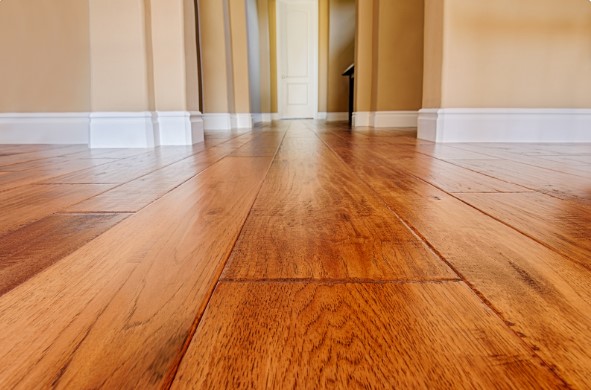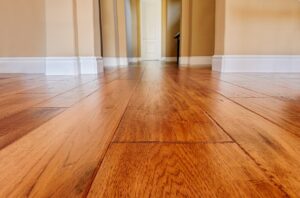2023

Does Flooring Add Value to a Home?
 When it comes to home improvement projects, few upgrades can match the impact of flooring. From hardwood floors in entryways and living rooms to stylish carpet in the bedrooms, new flooring could be just what you need to reinvent your space. But aside from aesthetic appeal, does investing in new flooring actually add value to a home? In this blog post, we’ll dive into the various factors that play a role when determining if flooring is worth the cost or not.
When it comes to home improvement projects, few upgrades can match the impact of flooring. From hardwood floors in entryways and living rooms to stylish carpet in the bedrooms, new flooring could be just what you need to reinvent your space. But aside from aesthetic appeal, does investing in new flooring actually add value to a home? In this blog post, we’ll dive into the various factors that play a role when determining if flooring is worth the cost or not.
Different Types of Flooring Options
Choosing the right flooring for your home can be a daunting task. With so many different types of flooring options available, it can be overwhelming to decide which one is best for your specific needs. Some of the most popular options include hardwood, carpet, tile, laminate, and vinyl. Each type of flooring offers its own benefits and drawbacks, depending on factors such as durability, style, and maintenance. Hardwood flooring is a classic and beautiful choice, while carpet provides comfort and warmth underfoot. Tile is durable and easy to clean, while laminate and vinyl offer affordability and versatility. By understanding the different types of flooring options available, you can make an informed decision and select the perfect flooring for your home.
The Pros & Cons of Each Flooring Option
Flooring is a crucial aspect when it comes to designing a house. With so many available options in the market, it can be challenging to decide which one would be the perfect fit.
Hardwood flooring has been and continues to be a popular choice due to its durability and timeless appeal. However, it can also be an expensive option.
On the other hand, carpet flooring offers comfort and warmth, making it ideal for bedrooms and living rooms, but it can be tough to maintain.
Tile flooring is versatile and resists water and spills, but it can also be slippery and cold. Ultimately, each flooring option has its own set of pros and cons that should be taken into consideration before making a final decision.
How to Choose the Right Flooring for Your Home
When it comes to choosing the right flooring for your home, there are a lot of factors to consider. You’ll want something that looks great, of course, but also durability, comfort, and maintenance are all important considerations.
Hardwood floors are a classic choice that can add warmth and elegance to almost any space, while tile and stone offer unmatched durability in high-traffic areas.
Laminate and vinyl flooring have come a long way in recent years, and can now mimic the look of more expensive options at a fraction of the cost.
Ultimately, the decision of which flooring to choose will depend on your own personal preferences and needs, as well as your lifestyle and budget. But with so many great options available, you’re sure to find the perfect flooring solution for your home.
Factors That Impact Flooring Value & ROI
Flooring is a key component of any home décor plan, and it can significantly impact the value and return on investment (ROI) of a property. There are several factors that homeowners should consider when selecting flooring materials to ensure they get the best value for their investment.
The first consideration is the durability of the flooring material. Durable flooring that can withstand heavy traffic and wear and tear will last longer, reducing replacement costs and maintenance expenses.
The second consideration is the aesthetics of the flooring. Modern, eye-catching flooring can entice potential buyers or renters and increase the property’s value.
Finally, the cost of installation and maintenance should be considered in relation to the longevity and durability of the flooring material. All of these factors play a crucial role in determining the value and ROI of a property’s flooring, making it important to carefully weigh all options before making a final decision.
A Cost-Benefit Analysis of Installing New Flooring
Replacing your home’s current flooring can have pros and cons. On one hand, new flooring can provide a fresh, updated look that increases your home’s value and aesthetic appeal. On the other hand, the cost and hassle of installation may not be worth it if your current flooring is in good condition.
Conducting a cost-benefit analysis can help you evaluate the worth of installing new flooring. Costs of materials, labor, and removal of old flooring must all be considered. You should also consider if the investment aligns with your long-term plans for your home. If you need help for cost benefit analysis, you could also hire an independent foundation repair company in houston.
The Impact of Flooring on Resale Value & Homeownership Costs
Flooring can have a big impact on both the resale value of a home and the overall homeownership costs. The type of flooring chosen can completely transform a space, attracting potential buyers or turning them off completely. Hardwood floors are a popular choice that can add both aesthetic appeal and value to a home.
However, they can also be more expensive upfront and require ongoing maintenance to keep them looking their best. On the other hand, opting for a more affordable vinyl or laminate flooring may lower initial costs but ultimately decrease resale value. It’s important to weigh the pros and cons and consider the overall impact on your budget and home value when selecting flooring.
In conclusion, flooring plays an important role in your home’s overall look and value. With the right flooring choice, you can add a touch of beauty and warmth to any room in your house. Whether you choose tile, hardwood, laminate, or carpeting, make sure to consider your personal home needs before making a purchase decision. Take time to understand which flooring option works best for your lifestyle and aesthetic tastes. By doing so, you’ll not only have beautiful floors but improved resale value down the road. Additionally, it’s important to consider all the associated costs such as installation fees and material costs when deciding on an ideal flooring option. Make sure that whatever flooring type you choose provides long-term benefits while staying within your budget range. With careful research and planning, you can select just the right floor for your budget and aspirations without draining away all your savings.